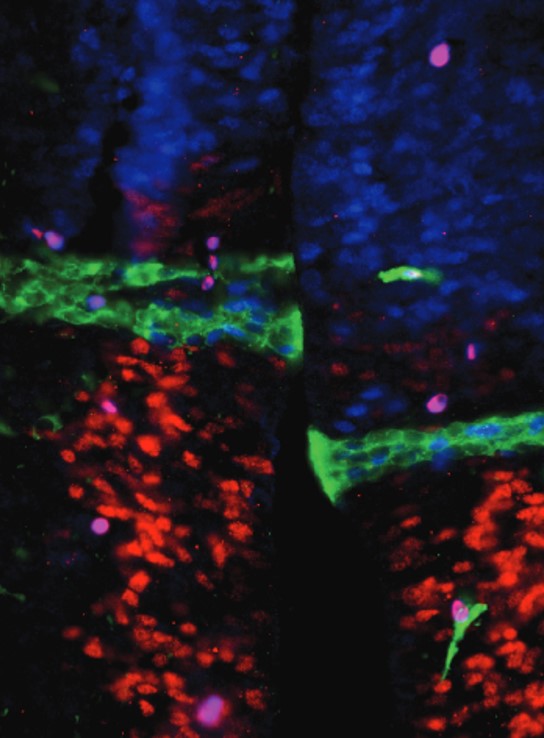David Price is Professor of Developmental Neurobiology at the University of Edinburgh’s Centre for Discovery Brain Sciences.
My lab employs a multidisciplinary approach to analyse mechanisms that regulate events that occur during the pre-natal and post-natal development of cortex in various species.
INSIGHTS INTO THE DEVELOPING BRAIN

Using a range of neuroanatomical, electrophysiological, cell biological, molecular biological, transplantation, genetic and transgenic methods we study the newborn cerebral cortex.
Our studies have found that the newborn cerebral cortex initially overproduces axonal connections, many of which link cortical sites that are not linked in the adult.
The mature pattern of connections emerges from this exuberant population by withdrawal of axons and death of inappropriately connected cells. We have used cell and tissue culture methods to show that cortex releases growth factors that can influence and may guide the growth and survival of neurons during pre and post-natal development.
Mutant mice were used to demonstrate that these growth factors include at least one member of the neurotrophin family. We demonstrated crucial requirements for transcription factors in controlling forebrain development. Our results demonstrate that the transcription factor, Pax6, controls cell proliferation, migration and differentiation in the embryonic neocortex, and that it regulates the growth of axons from the embryonic thalamus to the cerebral cortex.
Employing genetics, transgenics, chimaeras and transplantation methods we have provided convincing evidence that the mechanisms by which Pax6 regulates these processes involves the control of molecules on the surface of forebrain cells.
Our current hypothesis is that Pax6 controls the expression of receptors that allow cells to respond correctly to signals from other cells during development. We continue to focus our research on three transcription factors called Pax6, Foxg1 and Gli3 without which the brain does not develop. Mutations of the genes that encode these factors have been implicated in human congenital diseases.
Email: David.Price@ed.ac.uk




